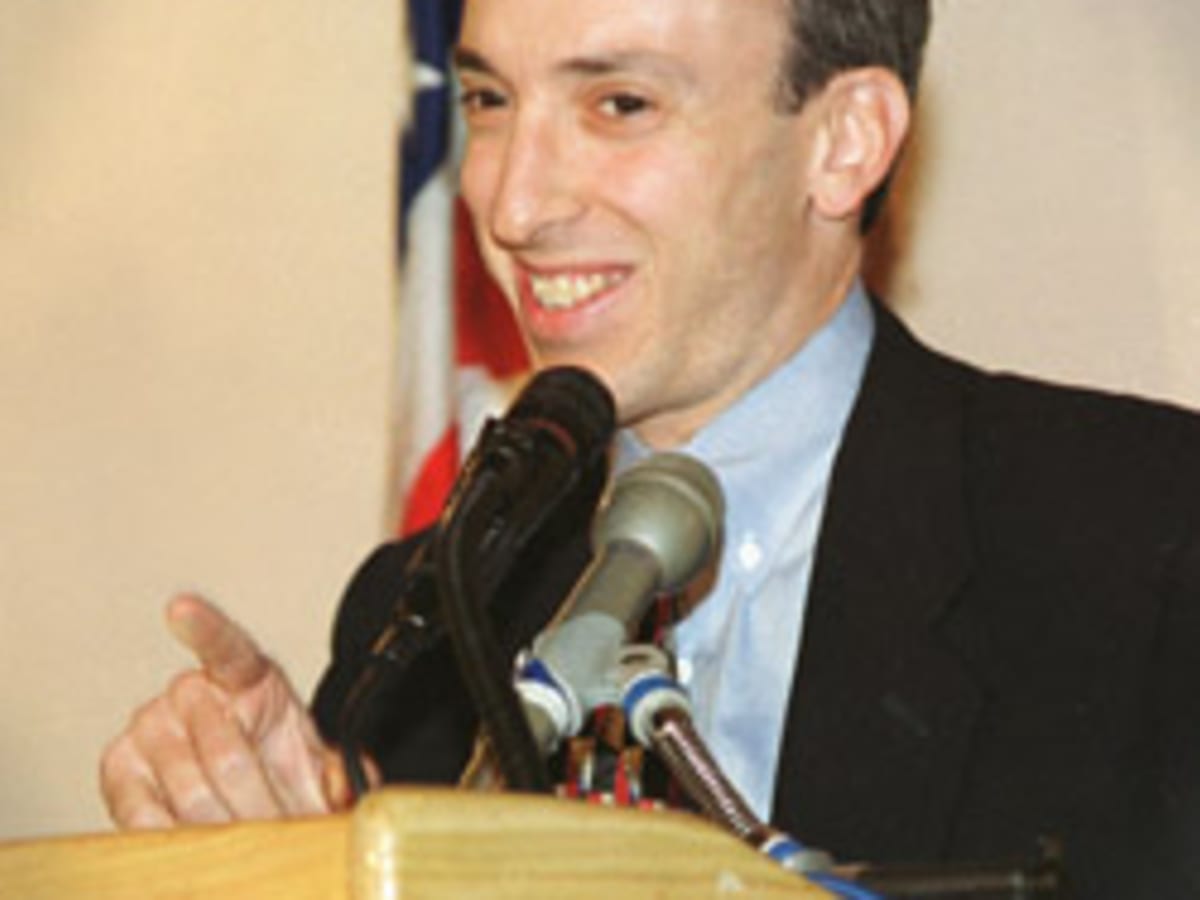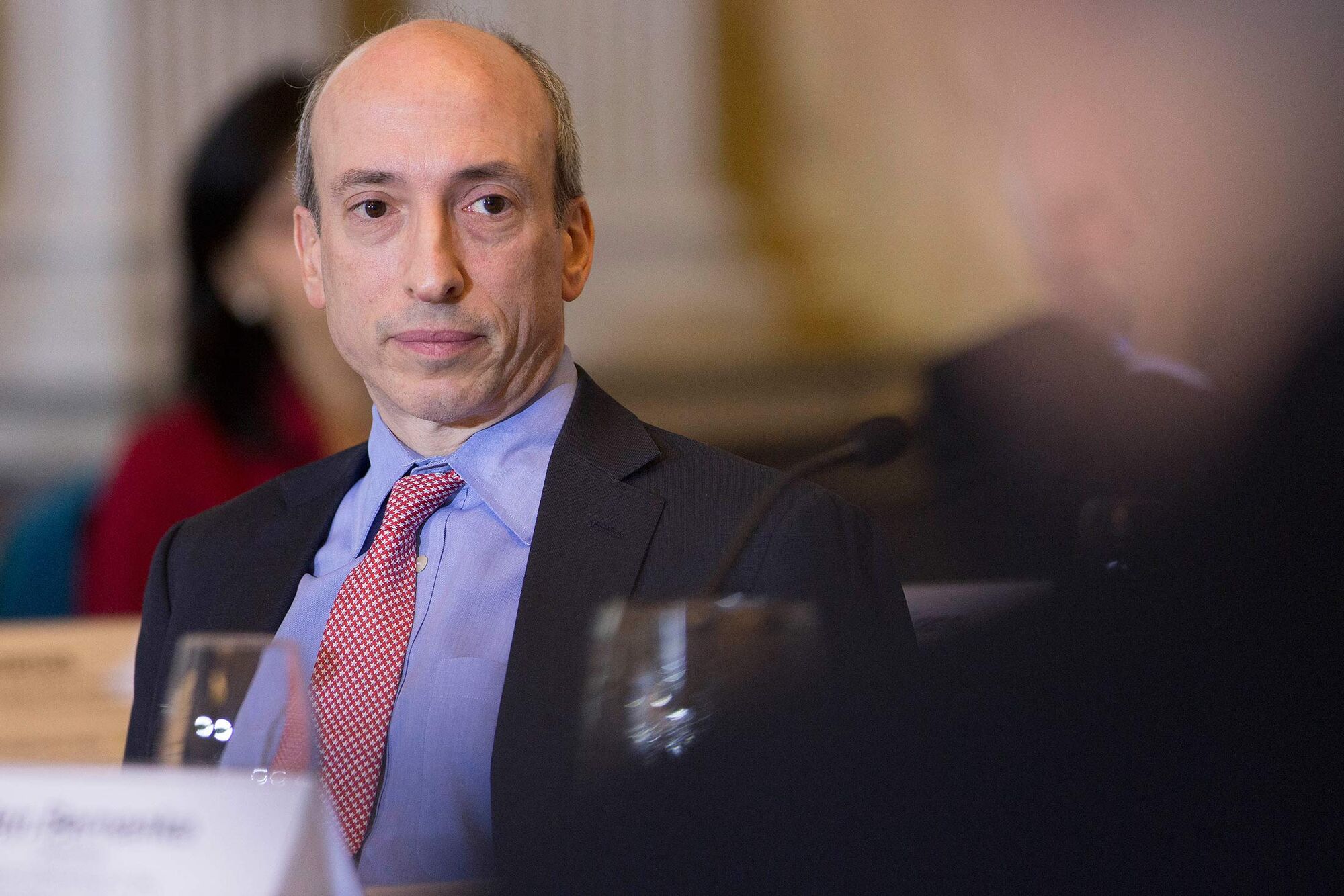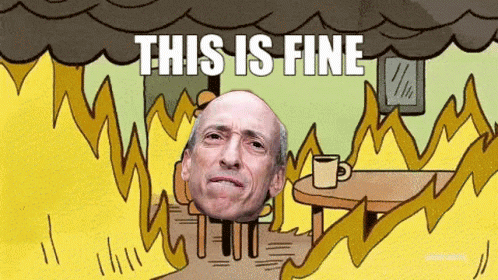Gary Gensler stepped into the ring as the United States Securities and Exchange Commission (SEC) chairman in April 2021. Now, he’s not your typical government guy—this dude has danced in financial and federal government circles, holding different executive positions like a boss.
Related: Chairman Gensler’s Resignation Rumors Debunked by SEC PR Team
So, what’s the deal with Gensler? Don’t worry, I’ll reveal cool facts about his background, journey through different gigs, and how he’s sailing the SEC chair’s ship. Get ready for a deep dive into Gensler’s financial and regulatory adventures.
Early Life and Education
You might know Gary Gensler as the head of the SEC, but did you know he was born in Baltimore, Maryland, on a fine day in October 1957? His parents, Sam and Jane, had five kids to feed, so Sam hustled as a pinball and cigarette machine supplier for the nearby pubs. He would often take Gary and his brothers and sisters along to collect the coins from the machines, giving Gary a taste of money matters from a young age. Maybe that’s why he grew up to be such a financial whiz.

Guess what? Gensler got the academic swag—an economics degree and an MBA from the Wharton School at the University of Pennsylvania. Then, in the year 1979, he kicked off his career at Goldman Sachs. Fast forward, and he became the company’s partner in Mergers and Acquisitions (M&A) and the cool co-head of finance.
Career in Finance
So, rewind to 1979: Gensler’s journey began as an investment banking maestro at Goldman Sachs. Climbing the corporate ladder like a champ, he ended up not just a partner but the co-head of finance—talk about making waves! This guy wasn’t sticking to just one flavor; he dabbled in mergers and acquisitions, media, fixed income, and even traded currencies.
After a solid 18 years of rocking the finance world, he decided to switch things up. He bid adieu to Goldman Sachs and joined the Clinton administration as the assistant secretary of the Treasury for financial markets.

Government Involvement
Alright, so Gary Gensler entered the political scene during the Clinton administration. From ’97 to ’99, he was like the financial advisor wingman to Treasury Secretary Robert Rubin. Then, he upped his game, becoming the Undersecretary for Domestic Finance, where he fought to keep credit default swaps off the regulatory radar.
In simple terms, he was the go-to guy for money matters in the government, helping shape the rules on how things work financially. Oh, and he got a cool award—the Alexander Hamilton Award—during his Treasury days.
Fast forward to 2009, and boom—Gensler lands the gig as the 11th Chairman of the U.S. Commodity Futures Trading Commission (CFTC) during the Obama era. Now, this guy wasn’t playing it safe; he earned a rep as the tough cop enforcing financial rules from the left-to-center playbook.
Remember the LIBOR financial scandal? Gensler wasn’t just watching from the sidelines; he went in headfirst. His efforts led to major financial institutions coughing up hundreds of millions in fines for playing around with LIBOR and tinkering with interest rates. Gensler at the CFTC was basically the sheriff in town, making sure everyone played by the rules or paid the price.
Dodd-Frank Act
Alright, let me break it down. The Dodd-Frank Wall Street Reform and Consumer Protection Act is like the superhero legislation that swooped in after the financial chaos of 2007–2008. It aimed to make the U.S. financial industry a safer space for us regular folks and taxpayers.
Now, as the CFTC chairman, Gensler lobbied hard to support the Dodd-Frank Act. And when it came time to put words into action, he led the charge, writing rules left and right to keep a close eye on the swaps market. He teamed up with the SEC and other regulators from around the world. Together, they were like the financial Avengers, making sure the financial system learned its lesson and played by the new rules.
Academic Contributions
Now, Gensler is not just a financial heavyweight; he’s also a Professor of the Practice of Global Economics and Management at the MIT Sloan School of Management. His main focus is on the link between finance and tech, with a spotlight on blockchain, digital currencies, fintech, and public policy.
Gensler doesn’t just preach; he practices what he teaches. He’s part of the New York Fed Fintech Advisory Group, where the big shots in financial tech gather to share their wisdom with the president of the New York Fed. Did I mention he’s got an Outstanding Teacher Award from MIT Sloan for the 2018–19 academic year? Yep, students gave him a virtual high-five for his teaching roles and skills.
He’s not just a professor; he’s also an author, with papers and articles on cool stuff like stablecoins, central bank digital currencies, smart contracts, and digital identity. You might catch him dropping knowledge at conferences, panels, and podcasts, where he spills the beans on the latest and greatest in the financial tech world.
SEC Chairmanship
In 2018, Gensler stepped into the ring as the chairman of the US SEC, the sheriff overseeing the financial markets and making sure investors sleep soundly at night. During his first year in the SEC driver’s seat, Gensler was on a regulatory marathon. He tackled everything from cryptocurrencies and insider trading to share buybacks, money market funds, and the flashy world of special purpose acquisition companies (SPACs).
But, oh boy, in 2022, Gensler turned up the heat on crypto firms, going for a “regulation by enforcement” vibe. Ripple (XRP) felt the SEC’s grip, and even a former Coinbase product manager got caught in the crossfire.
Read More:
- Digital World Drama: Binance Sued by SEC, NFTs Get a Luxury Boost, While Apple’s Vision Pro Bypasses the Metaverse
- Power Drama at the SEC, Bank of China’s Crypto Leap, Bitcoin Football, and CPI Volatility
Gensler isn’t sparing celebrities either. Remember when Kim Kardashian got into the crypto game? Well, the SEC charged her for endorsing EthereumMax, and she had to cough up $1.26 million to settle the score. Gensler’s SEC is basically the no-nonsense squad, making sure the financial world plays by the rules or pays the price.
Disclaimer: All materials on this site are for informational purposes only. None of the material should be interpreted as investment advice. Please note that despite the nature of much of the material created and hosted on this website, HODL.FM is not a financial reference resource and the opinions of authors and other contributors are their own and should not be taken as financial advice. If you require advice of this sort, HODL.FM strongly recommends contacting a qualified industry professional.




